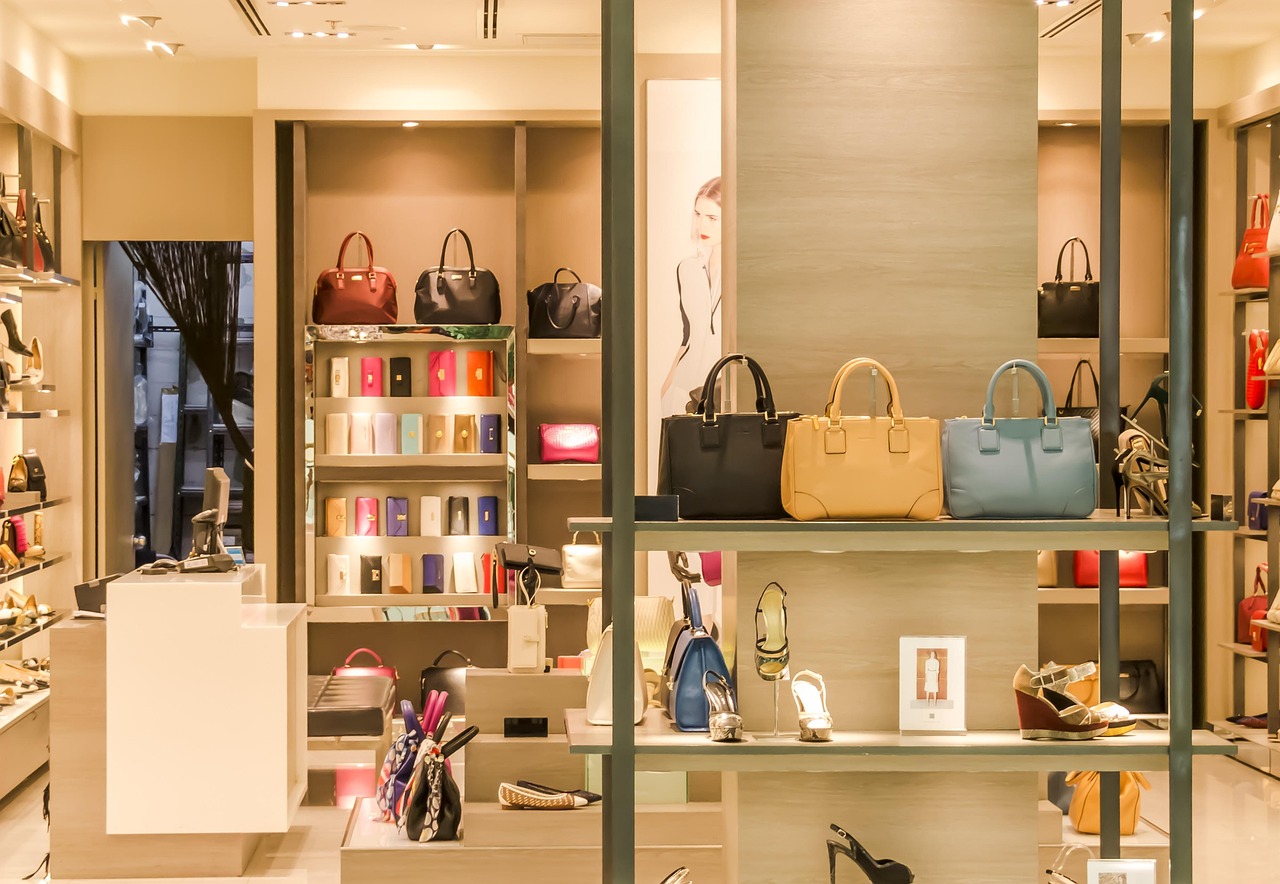The Reality of the Chanel Affiliate Program in 2025
For affiliate marketers and content creators focused on high-end fashion and beauty, the prospect of partnering directly with a brand as iconic as Chanel is highly appealing. However, the definitive status regarding a public, direct Chanel affiliate program in 2025 is clear: Chanel does not operate a traditional, open affiliate program accessible via standard affiliate networks like ShareASale, CJ Affiliate, or Rakuten Advertising.
This finding is consistent with the marketing strategies employed by ultra-luxury European fashion houses. Unlike mass-market retailers or direct-to-consumer (DTC) brands that rely heavily on performance marketing and high-volume sales driven by affiliates, Chanel prioritizes brand exclusivity, image control, and curated customer experiences over commission-based volume.
Understanding this strategic decision is crucial for anyone looking to monetize content related to Chanel products. The path to monetization requires shifting focus from direct affiliation to indirect partnerships and strategic retail collaborations.
Why Luxury Brands Like Chanel Avoid Traditional Affiliate Models
The decision by Chanel to forego a standard affiliate program is rooted in fundamental principles of luxury brand management. These principles directly contrast with the goals of typical performance marketing.
Maintaining Brand Exclusivity and Image Control
Luxury brands thrive on scarcity, high price points, and an aura of aspirational exclusivity. Traditional affiliate marketing, which often involves broad distribution and discount codes, can dilute this image. When products are widely promoted by thousands of affiliates, the perception of exclusivity diminishes.
Chanel maintains tight control over its brand narrative, product presentation, and pricing. Allowing third-party affiliates to market products independently introduces risks related to:
- Brand Messaging: Ensuring every promotion aligns perfectly with the brand’s sophisticated aesthetic.
- Pricing Integrity: Preventing the use of unauthorized discounts or promotions that undermine the perceived value.
- Channel Conflict: Protecting the experience offered in their exclusive boutiques and authorized high-end department stores.
The Role of Influencer Marketing and Brand Partnerships
Instead of broad affiliate programs, Chanel utilizes highly selective, high-touch partnerships. These relationships fall into two main categories:
- Ambassador Programs: Long-term contracts with A-list celebrities and established fashion icons who embody the brand’s values (e.g., brand muses).
- Curated Influencer Collaborations: Short-term or campaign-specific partnerships with micro and macro-influencers who have a proven track record of high engagement and alignment with luxury aesthetics. These are typically paid collaborations (sponsorships) rather than commission-based affiliate sales.
These strategies allow Chanel to maintain control over who promotes their products and how, ensuring that the promotional efforts enhance, rather than detract from, the brand’s prestige.
Alternative Avenues for Monetizing Chanel Content
Since a direct Chanel affiliate program is not available, successful luxury content creators must utilize indirect methods to earn commissions on sales of Chanel products. These methods leverage authorized retailers who do offer affiliate programs.
1. Department Store Affiliate Programs
Many high-end department stores are authorized retailers for Chanel beauty, fragrance, and sometimes accessories. Partnering with these retailers allows you to earn commissions when your audience purchases Chanel items through their platforms.
Key programs to consider include:
- Nordstrom: Known for carrying a wide range of Chanel beauty and fragrance products. Their affiliate program is robust and often managed through networks like Rakuten Advertising.
- Saks Fifth Avenue: A premier destination for luxury goods, often carrying exclusive Chanel items. Their program is essential for high-end fashion affiliates.
- Neiman Marcus/Bergdorf Goodman: These retailers cater specifically to the luxury market and offer strong commission structures for high-AOV (Average Order Value) sales.
These programs offer a viable workaround, allowing affiliates to promote the product (Chanel) while earning commissions through the retailer (the affiliate partner).
2. High-End Beauty Retailer Programs
For content focused specifically on Chanel makeup and skincare, partnering with specialized beauty retailers is effective.
- Sephora: While Sephora’s inventory of Chanel products can vary by region, they often carry core fragrance lines. Their affiliate program is widely accessible and offers competitive rates for beauty products.
- Ulta Beauty: Similar to Sephora, Ulta’s affiliation with Chanel is often limited to specific product categories, but their program is a strong option for beauty-focused content.
3. Content Monetization Strategies Beyond Affiliation
Affiliate marketing is only one pillar of content monetization. For luxury content, other revenue streams often prove more lucrative and brand-appropriate:
| Strategy | Description | Relevance to Luxury Content |
|---|---|---|
| Sponsored Content | Direct payments from non-competing brands (e.g., luxury travel, jewelry, high-end home goods) for integrated promotions. | High. Maintains image control and high CPM/CPA. |
| Ad Revenue (Premium Networks) | Utilizing high-paying ad networks (like Mediavine or AdThrive) once traffic thresholds are met. | Moderate. Provides stable income without relying on commissions. |
| Digital Products | Selling e-books, style guides, or courses related to luxury fashion and personal styling. | High. Establishes the creator as an authority and generates high-margin revenue. |
For those interested in maximizing recurring revenue through strategic partnerships, reviewing successful models in other high-value niches can be beneficial, such as the comprehensive review of the amocrm affiliate program in 2025.
Analyzing the Competitive Landscape: Does Gucci or Dior Offer Affiliate Programs?
To fully understand the strategy behind the lack of a direct Chanel affiliate program, it is helpful to examine its primary competitors in the luxury space. The findings reinforce the industry norm for ultra-high-end fashion houses.
Does Gucci Have an Affiliate Program?
Similar to Chanel, Gucci does not typically run a direct, open affiliate program for its main fashion and leather goods lines. Gucci maintains strict control over its distribution and brand image.
However, exceptions sometimes exist for specific product lines or regions, often managed through exclusive, invitation-only partnerships or via authorized luxury e-commerce platforms like Farfetch or Net-a-Porter, which do have affiliate programs. If you are targeting the luxury market, focusing on these major e-tailers is a more reliable strategy than searching for a direct Gucci affiliate program sign-up link.
Dior and Louis Vuitton Affiliate Status
Dior and Louis Vuitton (LVMH Group) follow the same pattern. Their core luxury goods are rarely, if ever, promoted through standard commission-based affiliate marketing. Their digital strategy centers on high-production content, exclusive collaborations, and direct-to-consumer sales through their own controlled channels.
This consistent approach across the top tier of luxury brands confirms that the absence of a Chanel affiliate program is a deliberate, strategic choice aimed at preserving brand equity, not an oversight.
Setting Up Your Own High-End Fashion Affiliate Strategy
Successfully monetizing luxury content requires a sophisticated approach that prioritizes quality and audience trust over volume.
1. Niche Down and Establish Authority
Instead of broadly covering ‘fashion,’ focus on a highly specific niche, such as ‘vintage Chanel accessories,’ ‘Chanel beauty reviews for mature skin,’ or ‘sustainable luxury investment pieces.’ Deep expertise in a niche builds the authority necessary to influence high-value purchasing decisions.
2. Master the Art of Indirect Linking
Since you cannot link directly to Chanel for commission, your content must seamlessly integrate links to authorized retailers. For example, a review of a Chanel fragrance should link to the product page on Nordstrom or Saks, clearly explaining that the purchase is being fulfilled by an authorized dealer.
3. Focus on High-Value Content Formats
Luxury audiences respond best to detailed, editorial-quality content. Focus on formats that justify the high price point of the products:
- Investment Guides: Analyzing the long-term value and craftsmanship of classic pieces.
- Comparative Reviews: Placing Chanel products alongside competitors (e.g., comparing a Chanel lipstick formulation to a Tom Ford or Hermès equivalent).
- Styling Tutorials: Demonstrating how to integrate luxury items into everyday or capsule wardrobes.
For a broader understanding of how different commission structures work across various industries, exploring Program Comparisons can offer valuable insights into optimizing your revenue streams.
Frequently Asked Questions (FAQ) About Luxury Affiliate Marketing
Is there a secret or invitation-only Chanel affiliate program?
While Chanel does not have a public program, they engage in highly selective, invitation-only partnerships with top-tier fashion publications, celebrity stylists, and influential figures. These relationships are typically managed directly by the brand’s PR or marketing teams and are not accessible via standard affiliate network applications. These are often structured as paid sponsorships or long-term ambassadorships, not traditional commission-based affiliation.
How can I get approved for luxury department store affiliate programs?
Approval for programs like Nordstrom or Saks requires demonstrating a high-quality, professional platform that aligns with the luxury aesthetic. Key requirements usually include:
- Professional Website/Blog: High-quality design, clear navigation, and consistent publishing schedule.
- Relevant Audience: Traffic demographics that indicate an interest in high-end goods and disposable income.
- Content Quality: Editorial standards, excellent photography, and well-researched articles.
It is essential to review the specific terms and conditions of each network, such as those governing the Flywheel affiliate program review, to understand the commitment required for high-commission partnerships.
What is the typical commission rate for luxury fashion affiliates?
Commission rates for luxury goods sold through department store programs typically range from 3% to 8% of the sale price. While the percentage is often lower than in high-commission niches like software or hosting, the Average Order Value (AOV) is significantly higher. A 5% commission on a $5,000 handbag yields $250, making high-end affiliate marketing profitable despite the lower percentage rates.
Can I use Chanel’s official images and logos in my affiliate content?
No. Chanel strictly enforces its intellectual property rights. Affiliates promoting Chanel products through third-party retailers must adhere to strict copyright laws. It is always safest to use your own original photography, video content, and editorial descriptions. If you must use official imagery, ensure you have explicit, written permission from Chanel or the authorized retailer, or rely on fair use principles for editorial commentary.
Get Started: Building Your Luxury Affiliate Portfolio
While the direct Chanel affiliate program remains elusive, the opportunity to monetize high-end fashion and beauty content is substantial through strategic partnerships with authorized retailers. Focus your efforts on building a highly authoritative platform that appeals to the luxury consumer, and leverage the affiliate programs of major department stores and e-tailers.
Begin by researching the specific affiliate networks used by Nordstrom, Saks, and Neiman Marcus to apply and start building your high-value commission pipeline today.
References
- McKinsey & Company. The State of Fashion 2025: Navigating the New Normal. 2025. — This report details the shift in luxury consumer behavior toward digital channels and the continued emphasis on brand control and exclusivity over mass-market performance marketing.
- Business of Fashion (BoF). Luxury’s Digital Dilemma: Balancing E-commerce and Exclusivity. 2025. https://www.businessoffashion.com/ — This article analyzes why brands like Chanel and Hermès prioritize direct-to-consumer channels and highly curated influencer partnerships over broad affiliate networks to maintain brand prestige.
- WWD (Women’s Wear Daily). The Evolution of Luxury Brand Ambassador Programs in the Digital Age. 2025. https://wwd.com/ — This piece explores how high-end brands are replacing traditional affiliate structures with formalized, paid ambassador and influencer programs to ensure consistent brand messaging and high-quality representation.
Last Updated on October 13, 2025 by eduhweb

